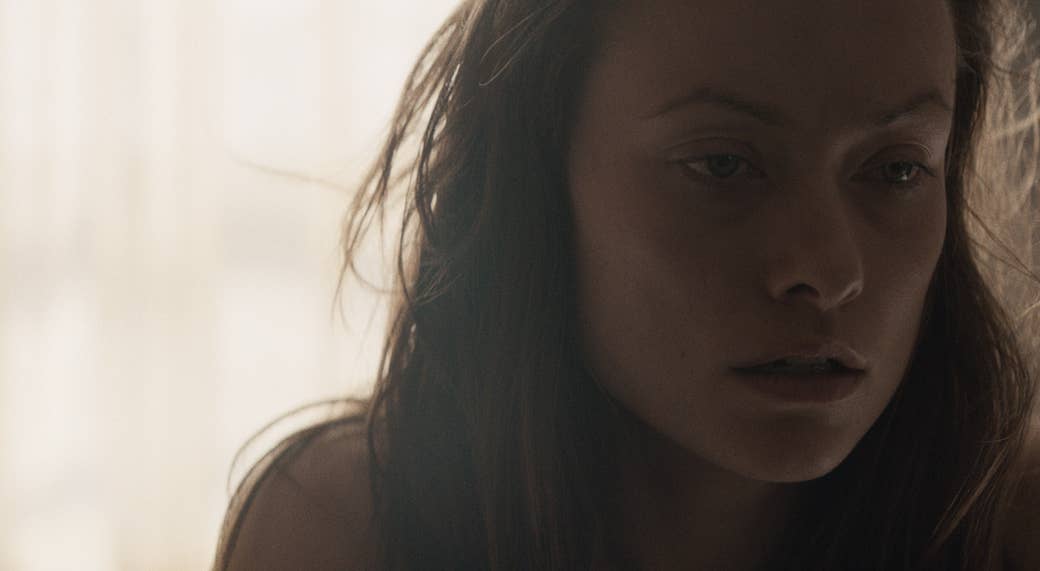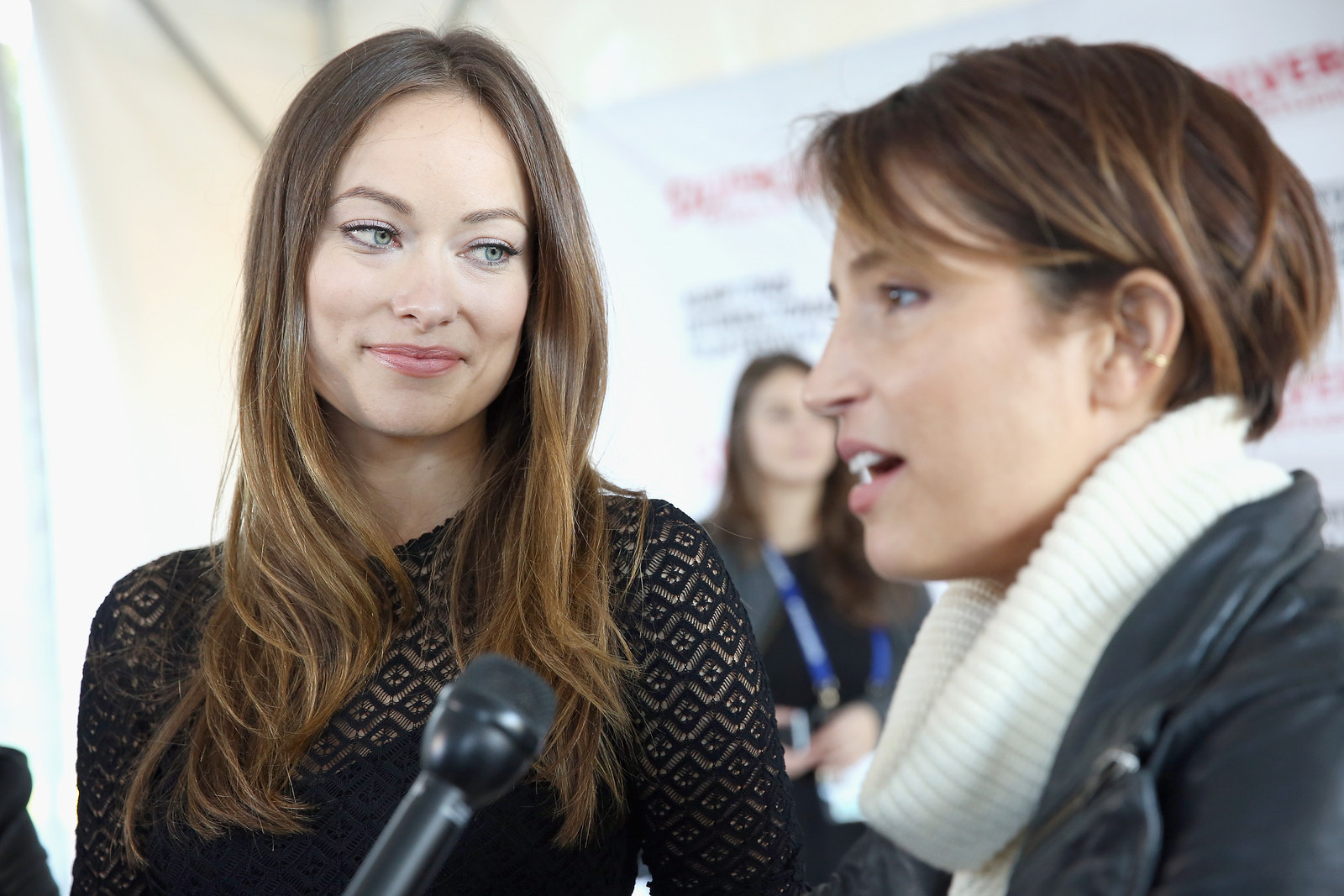
Olivia Wilde's ascent as an actor has been well-documented: After getting her start on TV series like The O.C. and House, M.D., she made the transition to feature films like Tron: Legacy and Her. But while her acting prospects have broadened, Wilde has been dealing with her fair share of rejection since branching out into producing.
"Producing can be difficult and discouraging because you hear 'no' a lot. Producers, it turns out, hear 'no' a lot more than actors," Wilde told BuzzFeed News, breaking into a laugh. "Everyone says no to the producer. That's the difference."
Wilde is credited as an executive producer on her 2013 indie Drinking Buddies, but Meadowland is the first time she has taken on a proactive producing role, working closely with director Reed Morano.
Meadowland, a drama written by first-time screenwriter Chris Rossi about parents grieving after their child disappears, so captured Wilde's imagination that it motivated her to take an uncharacteristically active role in the filmmaking process as a full producer.
"There aren't many roles that inspire you to force the director to come to your home."
Wilde was most excited about the prospect of working with Morano, an accomplished cinematographer (Frozen River, Kill Your Darlings, The Skeleton Twins) who would be making her directorial debut with Meadowland (as well as serving as the film's DP). After meeting with Morano to discuss the movie, Wilde decided on a radical approach to get herself considered for the lead role of Sarah.
"I said, 'I think you should come to my house and film me doing one or two scenes, and see if you want me in this role, because I think you should cast me in this role,'" Wilde recalled. "So she came over to my apartment and we shot a couple scenes and I even loved her directing style then — even in an audition she was such a great director to work for."
Once Wilde got the part, she immediately told Morano she wanted to produce Meadowland, specifically to help preserve Morano’s vision for the film. Wilde admitted that she's not generally as aggressive about her work, but, as she put it, "There aren't many roles that inspire you to force the director to come to your home."
And Wilde's assertiveness ended up serving her well as she balanced the dual roles of actor and producer. Producing an independent film, particularly one with delicate subject matter like Meadowland, is not an easy feat. It's also far too common for a first-time director like Morano to get talked over by louder voices. Wilde was determined not to let that happen.

Wilde was also motivated by her desire to support a female filmmaker in an industry where directors who are women are still consistently overlooked. In her quest to get funding for the film, Wilde was confronted directly by the gender bias she was rallying against.
"It was incredibly difficult to get financing," she said. "Reed Morano has DP-ed Oscar-[nominated] films. She is no newbie. Of course she’d make a great director based on [her] experience. So for me, it seems like a pretty safe investment. I wonder if it would have been easier if she were a man. I suspect it would have been."
Over the course of her career, Wilde has rarely encountered overt displays of sexism, but she has learned to pick up on more discreet forms of prejucide that permeate the industry.
"I've never met anyone who said, 'Well, I don't want to work with a female director.' That tends to be how it happens with institutionalized bias. It's not something you hear outright," she said. "It's more of a subtle sort of discrimination, mostly on the part of people making the large investments that are required to make content."
Now that she's been on the production side of things, Wilde has a better sense of how much things cost — and she's well aware of the risks involved with funding a film, especially one from a new director. The way she sees it, financiers go with the soundest investment, and that means working with established filmmakers — who are typically male.
As disheartening as this can for someone working within the system, Wilde recognizes that progress is being made, albeit at a slower pace than she would like. Audiences are clamoring for more diverse voices in filmmaking, and the industry still has a lot of catching up to do.
"At this point as a producer, I really enjoy having the chance to champion films made by women."
"We have to take into account that this is an actual societal issue, that millionaires with cash to burn in the film industry are perhaps influenced by their own institutionalized sexism," Wilde said. "And I think we'll see a shift in the types of stories that are being made once they realize it's a valuable investment to make, but that tends to happen slowly. That always trickles slowly."
For now, Wilde is focused on getting films like Meadowland made: She's proud of what Morano has accomplished, and the part Wilde herself played in it, both onscreen and off. And while she's open to any number of producing opportunities that come her way, she wants to continue working with female filmmakers for the time being. Even if it's not a film she wants to star in, she is committed to making sure female voices in the industry are being heard.
"There's a lot of incredible male filmmakers out there, too, and I've worked with some of them, and I'll work with more I hope, but at this point as a producer, I really enjoy having the chance to champion films made by women," Wilde said. "And luckily there are so many great filmmakers out there that are women that are trying to get their stories made, and I'm excited about it. It's a fun position to be in."
"I feel a responsibility toward my own community," Wilde continued. "I want to champion female filmmakers and I want to make sure that they're feeling the support as much as their male counterparts. I've been lucky enough to be in a position that my involvement in something can help get it made, so if I can push the needle, I want to push the needle where it needs to be pushed."
